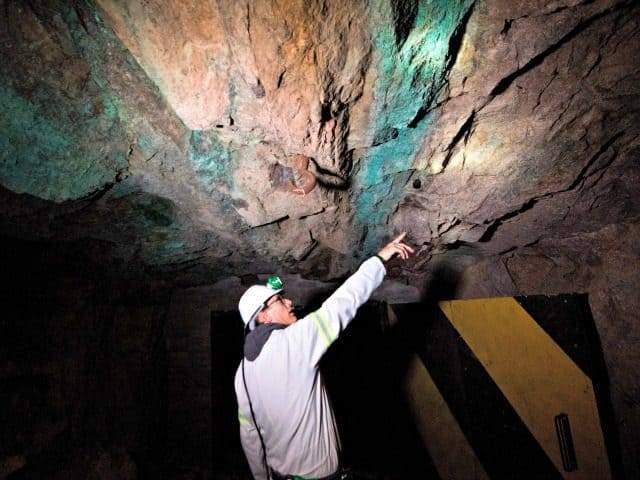Report: China May Curb Rare Earth Exports to Cripple U.S. Defense Industry

China could cripple the United State’s defense industry by limiting the export of rare earth minerals that are critical to manufacturing F-35 fighter jets and other vital weaponry, according to a report in Financial Times.
The Ministry of Industry and Information Technology last month proposed draft controls on the production and export of 17 rare earth minerals in China, which controls about 80 per cent of global supply.The Chinese move follows deteriorating Sino-US relations and an emerging technology war between the two countries. The Trump administration tried to make it harder for Chinese companies to import sensitive US technology, such as high-end semiconductors. The Biden administration has signalled that it would also restrict certain exports but would work more closely with allies. Beijing’s control of rare earths threatens to become a new source of friction with Washington but some warn any aggressive moves by China could backfire by prompting rivals to develop their own production capacity.“The government wants to know if the US may have trouble making F-35 fighter jets if China imposes an export ban,” said a Chinese government adviser who asked not to be identified. Industry executives added that Beijing wanted to better understand how quickly the US could secure alternative sources of rare earths and increase its own production capacity.
“The writing has been on the wall for decades, and now we are seeing first-hand why we’ve been raising the alarm that China’s dominance over the rare earth and critical minerals industry is a highly volatile geopolitical concern,” Pini Althaus, CEO of USA Rare Earth, said in a statement distributed to the media in reaction to the Times report.
“This move, if enacted, would go beyond the Chinese Communist Party’s (CCP) ‘Made in China by 2025’ and ‘Belt and Road’ initiatives – both of which are tools for China’s continued dominance as a global manufacturer and exporter of finished goods, and be more about weaponizing rare earth exports, as China has done previously,” Althaus said.
“To counter the effort of the CCP to put a chokehold on defense and other high-tech metals, the U.S. and its allies must continue to invest in this space,” Althaus said.
According to a Congressional Research Service report, each F-35 aircraft requires 417kg of rare earth materials. Rare earth minerals are also used to manufacture a number of products, including smartphones, electric vehicles, and wind turbines.
“The Pentagon has become increasingly concerned about the US reliance on China for rare earths that are used in everything from precision-guided missiles to drones,” the Times reported. “Ellen Lord, the top defence official for acquisitions until last year, told Congress in October that the U.S. needed to create stockpiles of certain rare earths and re-establish domestic processing. She said the U.S. had a ‘real vulnerability’ because China floods the market to destroy any competition any time nations are about to start mining or producing.”
The Pentagon has signed contracts recently with American and Australian miners to boost their onshore refining capacity and reduce their reliance on Chinese refiners.
The Times reported that the Biden administration would be reviewing domestic rare earth production and could issue an executive order to accelerate Department of Defense investment in the development of the U.S.-based critical minerals supply chain.
Photo: RODGER BOSCH/AFP via Getty Images
Link: https://www.breitbart.com/politics/2021/02/19/report-china-curb-rare-earth-exports-cripple-us-defense-industry/




